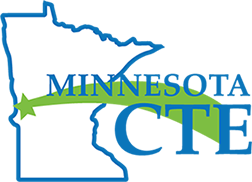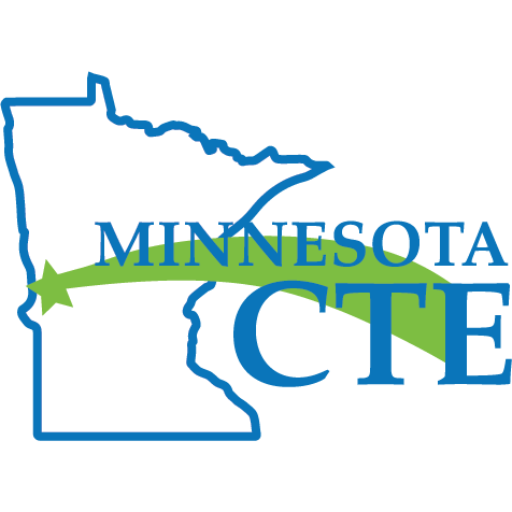Origins of the Minnesota Teacher Induction Program
02/14/2024
Recommended citation: Sheehan, C. Z. (2024), Origins of the Minnesota Teacher Induction Program [White Paper]. Minnesota CTE, Lakes Country Service Cooperative. https://mncte.org/tiphistory/
With more than 20 years of experience mentoring new agriculture, food, and natural resources, business and marketing, family and consumer, health/human services, trade and industry, and work-based learning teachers, our CTE Teacher Induction Program (CTE TIP™) and the advanced mentoring programs give teachers the tools to be successful. Lakes Country Service Cooperative and the Minnesota Association for Career and Technical Education (MnACTE) administer CTE TIP, with major support from the Minnesota Service Cooperatives’ CTE Consortium Grant and PELSB’s Teacher Mentorship and Retention of Effective Teachers Grant, and additional funding from the Minnesota Department of Education and Minnesota State using state Perkins leadership funds. However, the journey of CTE TIP from idea to successful practice was long. The purpose of this study was to explore the history of CTE TIP and any changes along the way which enabled its success.
1998
The Teacher Induction Program (TIP) began as a combined effort of the University of Minnesota and the Minnesota Department of Education as early as 1998. TIP for teachers of agriculture, food and natural resources was successfully operated by Dr. Roland Peterson of the University of Minnesota and Joel Larsen of the Minnesota Department of Education, with funding and support from the Minnesota Leadership Council for Agricultural Education (MAELC) and the Minnesota Department of Education. Early efforts for TIP in CTE areas other than AFNR were largely unsuccessful.
2006
Based on our research—including a historical analysis, interviews, and artifact analysis—in 2006 there was another effort to expand TIP to serve all of Minnesota CTE. This time, the project was lead by CTE Supervisor Dan Smith and AFNR Specialist Joel Larsen of the Minnesota Department of Education, Dr. Dick Joerger of the University of Minnesota, and the CTE teacher professional organizations (i.e., MnACTE). The project also included Minnesota State Colleges and Universities (note: now known as Minnesota State), specifically CTE teacher preparation programs at these universities. MDE’s vision for the program was to have “a single CTE TIP” as opposed to numerous, fractured programs that did not support one another. MDE’s key elements for CTE TIP were “involvement by higher education representatives, Minnesota Department of Education specialists, teacher professional organizations of the service areas, and the entry-level teachers and their respective school leaders.” MDE committed fiscal resources for conducting the new pilot, specifically for expenses of mentors, and limited funds available to the universities to manage the program activities. In spring 2006, CTE Supervisor Dan Smith and CTE professional organization representatives, with input from MDE CTE content specialists and university personnel, created a framework for operation of CTE TIP, including a statewide directory of all Minnesota CTE teachers.
Objective 1: Provide programming to address the professional needs of entry-level CTE teachers in agriculture, business/marketing, health science technology, and trade/industrial fields.
– Initial Strategy: Complement induction programming being delivered by local school districts with programming that addresses the unique needs of entry-level CTE teachers.
– Key Supporting Strategies and Activities: (a) determine the nature of the common and unique professional needs of CTE teachers, focusing on instruction and management relating to career and technical education student organizations, classrooms, laboratories, and supervised occupational and work-based learning.
Objective 2: Expand our knowledge about the needs of early-career CTE teachers and about induction and mentoring of these teachers through on-going inquiry.
– Initial Strategy: Conduct on-going systematic inquiry that builds upon and expands induction and mentoring research conducted by previous and contemporary researchers.
– Key Supporting Strategies and Activities: (a) examine the professional needs and difficulties of CTE teachers, (b) explore the experiences and needs of mentors, program coordinators, and other program partners, (c) examine the influence of induction programming upon teacher effectiveness, attrition, and pace of development as professional teachers, (d) explore the availability and nature of programming of other teacher support, assistance, and evaluation systems, and (e) engage in other related research in partnership with other scholars in the Department of Education, University of Minnesota, and MnSCU (note: now known as Minnesota State).
Objective 3: Strengthen the retention rate of effective entry-level career and technical education teachers.
– Initial Strategy: Monitor and attend to the psychological, technical, pedagogical, and socialization needs of the teachers. Initiate strategies known to improve teacher effectiveness.
– Key Supporting Strategies and Activities: (a) provide technical (pedagogical, content pedagogy, subject matter) assistance to the early career teachers, (b) increase access to quality curricular and instructional materials, (c) optimize the socialization experience into the CTE teaching profession with an emphasis on early participation in professional teacher organizations related to the content, (d) optimize teacher satisfaction through induction programming and an informed learning community for early career teachers, (e) become engaged in a personalized process of professional development that meets personal, school, and professional goals, (f) enhance annual induction programming using information from formative and summative program evaluations, (g) initiate strategies to engage early career teachers in systematic formative and summative assessments of their teaching performance, (h) assist early career teachers to develop individual learning plans that are based upon the Minnesota Board of Teaching Standards of Effective Practice (note: now known as PELSB), and (i) maintain records of information about the early career teachers (e.g., school size, student enrollment).
On May 8, 2006, MDE sent a letter from MDE CTE Supervisor Dan Smith and Dr. Joerger of the University of Minnesota to leaders and teachers in CTE across MN, including all Perkins leaders and teacher professional organization leaders (i.e., MnACTE) inviting them to the new CTE TIP project during the 2006-2007 school year. Questions for the program were to be addressed to CTE staff at MDE, including Joel Larsen (AFNR), Jean Kyle (B&M), Mike Mitchell (HSE), and Jim Mecklenburg (T&I). Note: The FCS position at MDE was vacant for more than a decade in the 2000s and 2010s. General questions about the program were directed to Dr. Joerger at the University of Minnesota.
The Teacher Kick-off Seminar was held August 9-10, 2006 at Century College in White Bear Lake. MDE lead the professional development seminar during 1.5 days of programming focused on (a) managing student behavior, (b) understanding the program approval process, (c) managing a program and creating effective community partnerships, (d) locating program resources, (e) using student organizations for leadership development, (f) effective content-specific instructional strategies, (g) integrating and reinforcing academics in CTE, and (h) using work-based learning opportunities. The program cost $35 to participate (about $50 based on 2024 rates).
There is limited evidence of the program continuing beyond 2007. TIP for teachers of agriculture, food, and natural resources, which had existed prior to the 2006 CTE TIP pilot, continued in 2007-2008 and beyond.
2021
In 2021, there was a third attempt to create TIP for all CTE teachers. In 2021, CTE leaders across various organizations became deeply concerned about teacher supply and demand, and teacher recruitment and retention. A partnership between the nine Minnesota Service Cooperatives—led by the state CTE teacher professional organization (MnACTE), Lakes Country Service Cooperative (LCSC), the University of Minnesota (UMN), and the Minnesota Department of Education (MDE) launched CTE TIP. The project was lead by Dr. Lavyne Rada-MnACTE and UMN, Dr. Zane Sheehan-MDE, Troy Haugen-LCSC, and Shelli Sowles-MDE. Dustin Steelbook-LCSC joined the CTE TIP leadership team in 2023 to provide support for teachers who hold the Work-Based Learning (WBL) endorsement.
The third attempt at CTE TIP took a different approach than prior efforts, providing the program to teachers at no cost, and leveraging partnerships across dozens of organizations. PELSB and project partners funded the pilot project in FY22 for 26 teachers. The following year, FY23, the project grew to a planned 150 teachers with $290,145 in grant and matching funding. In 2023-2024, year three, the project grew again with more than $332,380 in grants and partner support, allowing for up to 180 participants.
Advanced, License-Specific TIP
TIP for teachers of agriculture, food, and natural resources has existed since 1998. Advanced mentoring programs for teachers of business and marketing, family and consumer sciences, health/human services, trade and industry, and teachers with the work-based learning endorsement are coming soon.
CTE TIP is a trademark of the Minnesota Association for Career and Technical Education (MnACTE).
AFNR TIP is a trademark of the University of Minnesota (UMN).









